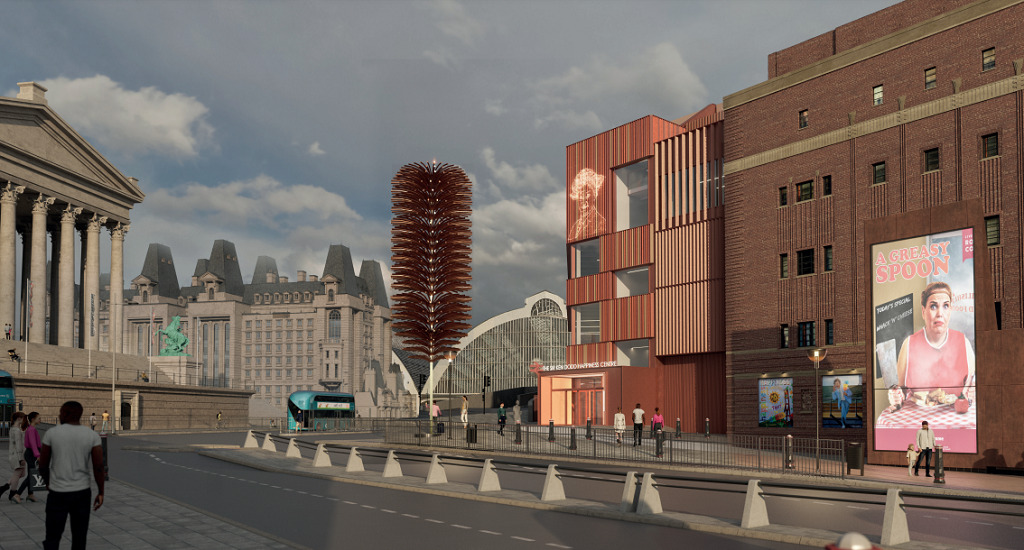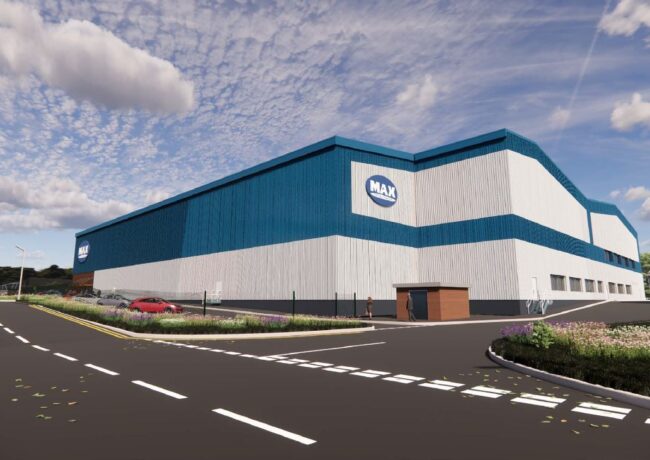RESOURCES | What we have learned from the Green GB week

Marcel Ridyard of AFL Architects writes:
The government’s first Green GB Week ran from the 15-19 October this year. Throughout the week, it sparked off conversations around the country about how businesses can build a cleaner, green future.
As active participants in building a vision for greening Manchester, AFL teamed up with Hilson Moran and OPEN (Optimised Environments) to host a workshop at the top of the week. Five teams presented five ideas to bring about change.
Here’s what we learned:
Only collective action can limit climate change
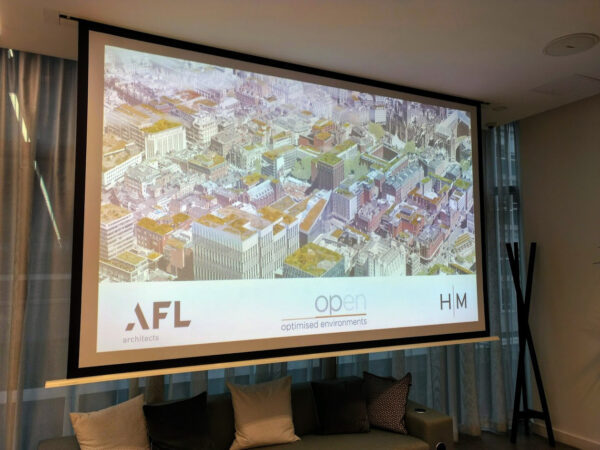
Green GB Week started off the back of a worrying report from the UN: that we only have 12 years to limit climate change catastrophe. This was the statement that I used to kick off the workshop, to emphasise the need for ambitious thinking. The truth is that any idea, however outlandish, is possible with collective action.
Our guest speakers continued in this vein. Chris Birch, the Director of Sustainability at Hilson Moran spoke on the London Plan and difference between Manchester and the capital. London has committed to a minimum of 35% improvement of CO2 emissions over Part L of the 2013 Building Regulations. Manchester’s target is for 15% improvement from the 2010 regulations.
The facts were clear: London is leading the way. If we are to compete, Manchester as a city needs to come together to introduce new regulations for sustainable development.
Some of Manchester’s new initiatives are leading the way
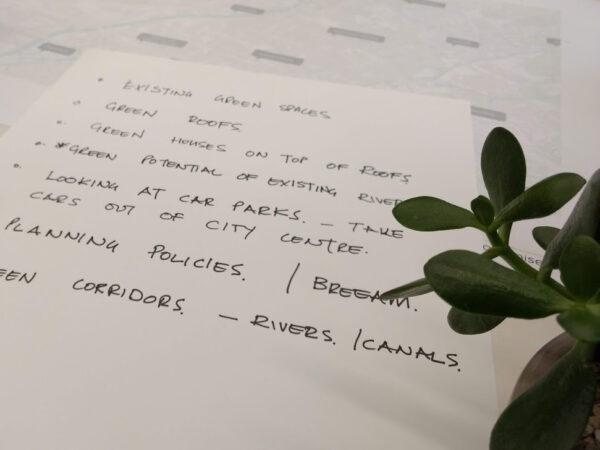
Next was Bev Taylor, Energy Manager at Bruntwood. She spoke on the potential for companies like Bruntwood to lead the way on innovation. Collectively, multiple buildings can create a clean energy grid, essentially decentralising energy systems through on-site generation.
This is already in action at Manchester Science Park, where the installation of a Tesla Powerpack system gives the park the capability to store power from renewable sources and distribute it at peak times. They estimate this virtual power plant will pay back its investment within 5 years.
And finally, Sian Day, Fundraising Manager at City of Trees, spoke about the City Releaf project – planting high-impact street trees across 1,000 locations in Manchester and Salford to improve the environment and attract visitors, residents and businesses. This initiative needs collective funding to realise its eventual goals.
People are Passionate about Bringing in Big Changes
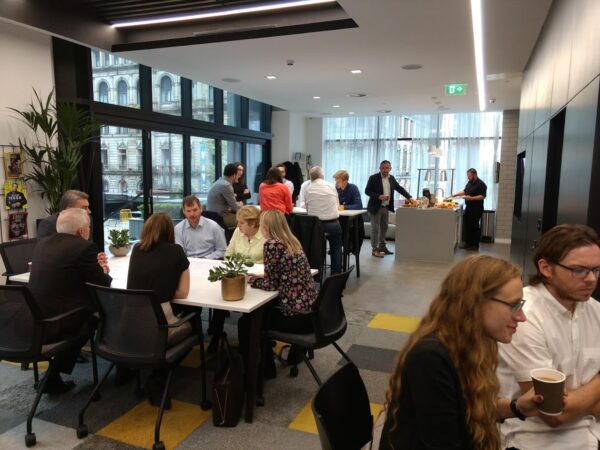
After some excellent talks, the workshop portion of the morning kicked off with an enthusiastic buzz of ideas. We set two challenges for the competing teams:
How can we harness the increased development activity to create more green spaces in Manchester?
And..
How can we create a carbon neutral Manchester?
Almost immediately, people were talking about two hot topics: the city’s public transport system, and a firmer carrot and stick regulatory approach for prospective developments. They were also positive about the younger generations coming into the workforce: they clearly understood the urgency to bring about change and weren’t afraid of big ideas.
Here’s what was presented to the room:
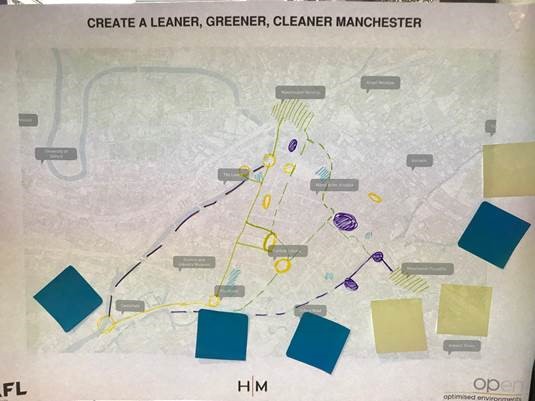
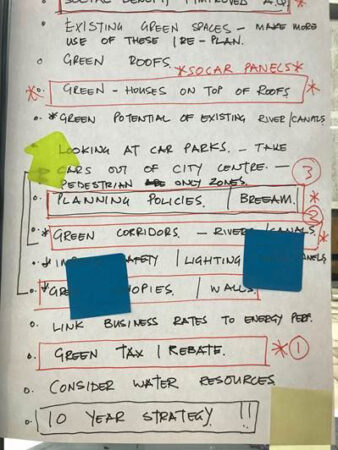
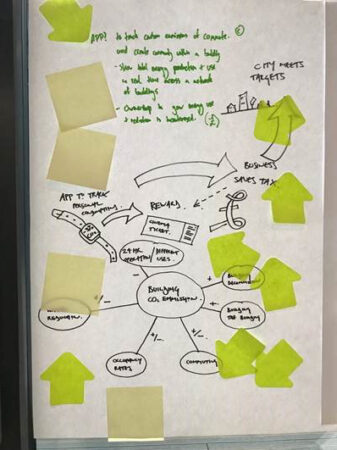
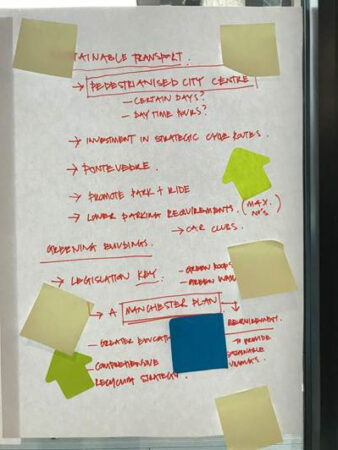
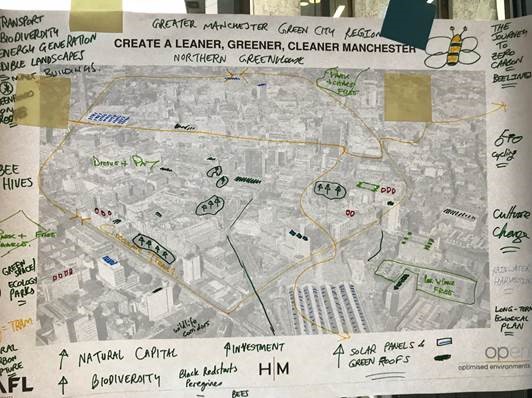
Team A: Closing Deansgate to traffic and greening the roofs of both train stations.
Team B: A Green Tax to pay for trees and the creation of green walkway canopies to shield people from the elements, with solar PV to generate power.
Team C: An app, similar to FitBit, that tracks carbon emissions, both from individuals and businesses. These stats can then be used competitively between businesses to reduce their CO2 footprint, with public screens around the city to show any improvements.
Team D: The creation of a Manchester Plan, with big legislation as the driving force. In addition, remove cars from the centre completely, plan for large Park and Ride areas, and increase the number of dedicated walking and cycle routes.
Team E: The development of a circular tram system, smart buildings, and biodiversity integrated through green walls and roofs.
Gamification could incentivise action
Ultimately, Team C took the winning prize with their carbon app. Gamifying environmental initiatives and fostering competition between businesses is a compelling idea, and one that takes human nature into account!
Ultimately, we want to keep this conversation going, even after Green GB week ends. As the skyline of the city changes around us, now is the time to reintroduce the natural environment back into our urban fabric.
We hear the word “Growth” a lot in this city – it’s time to bring back its original definition, and create a greener Manchester for future generations.
This article was originally published on Place Resources.



